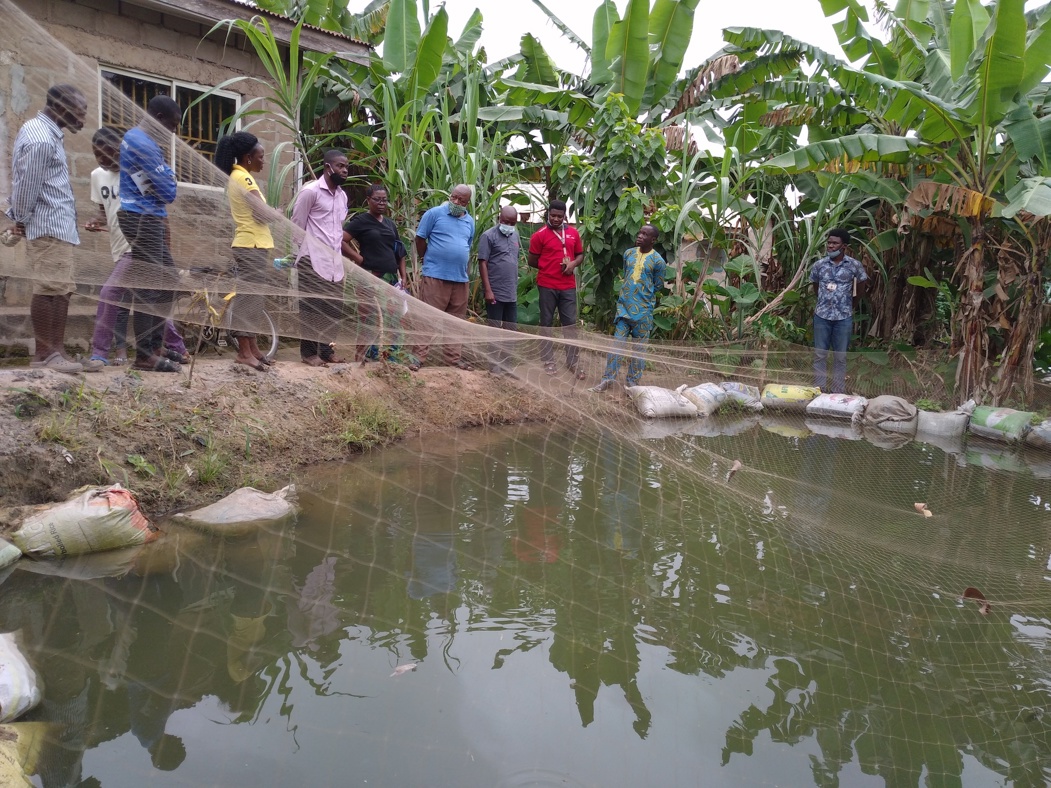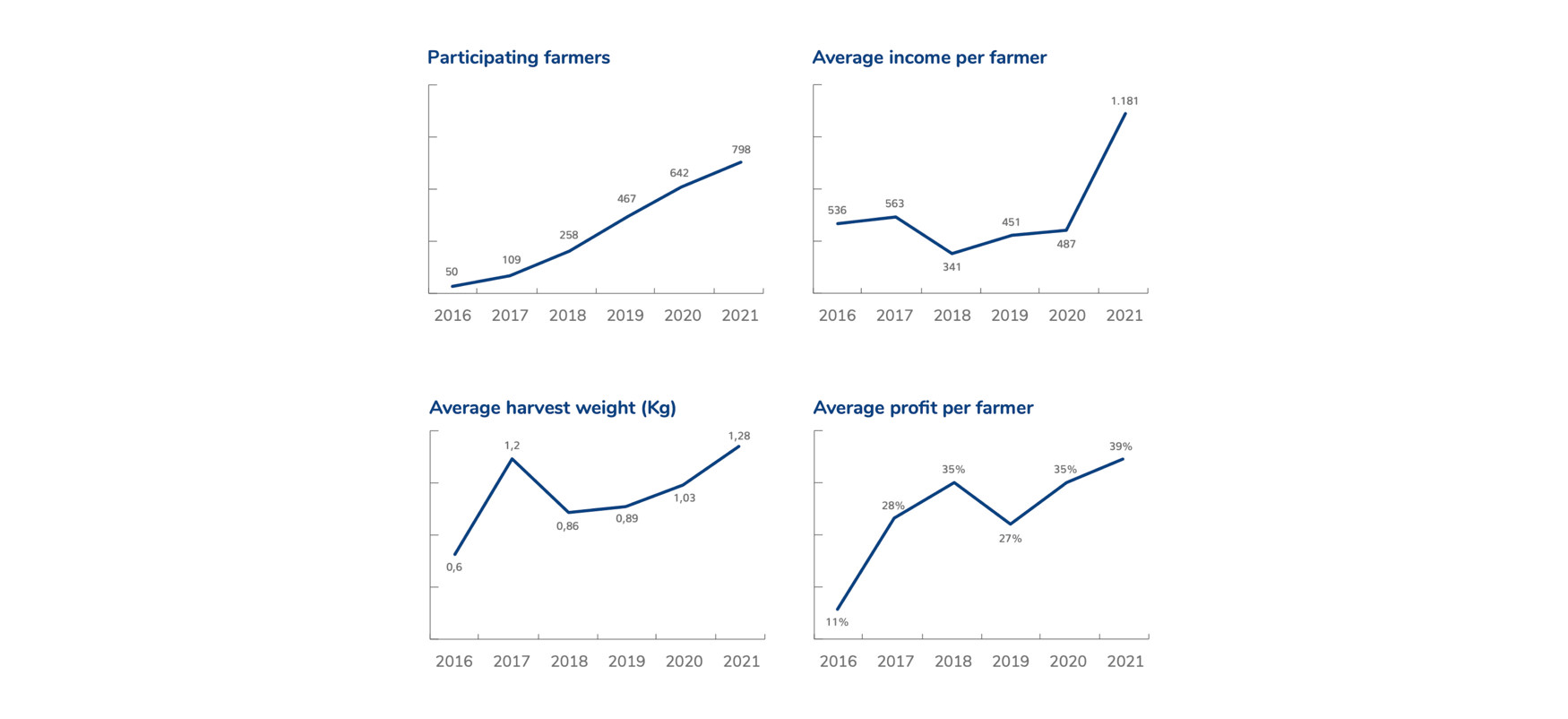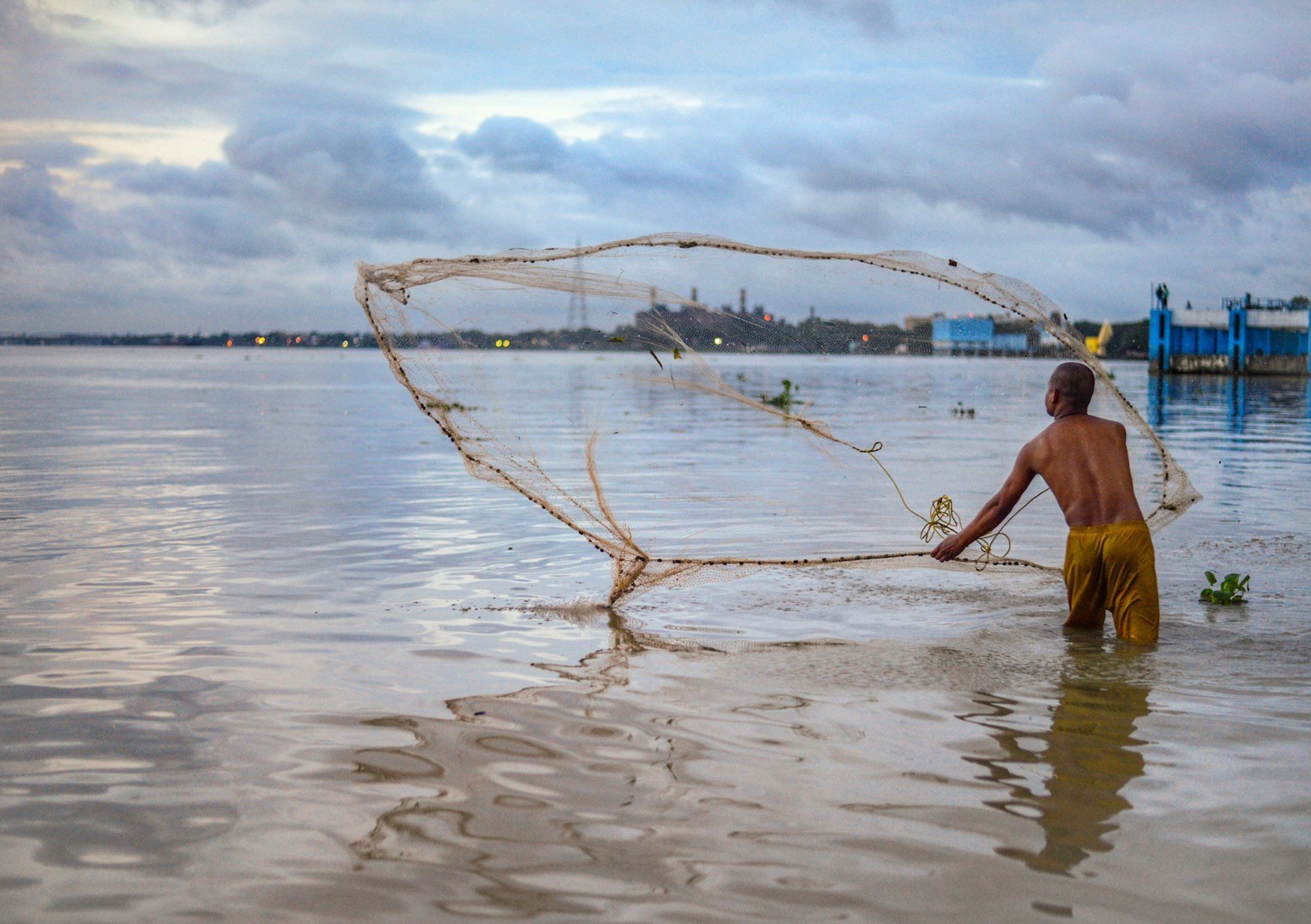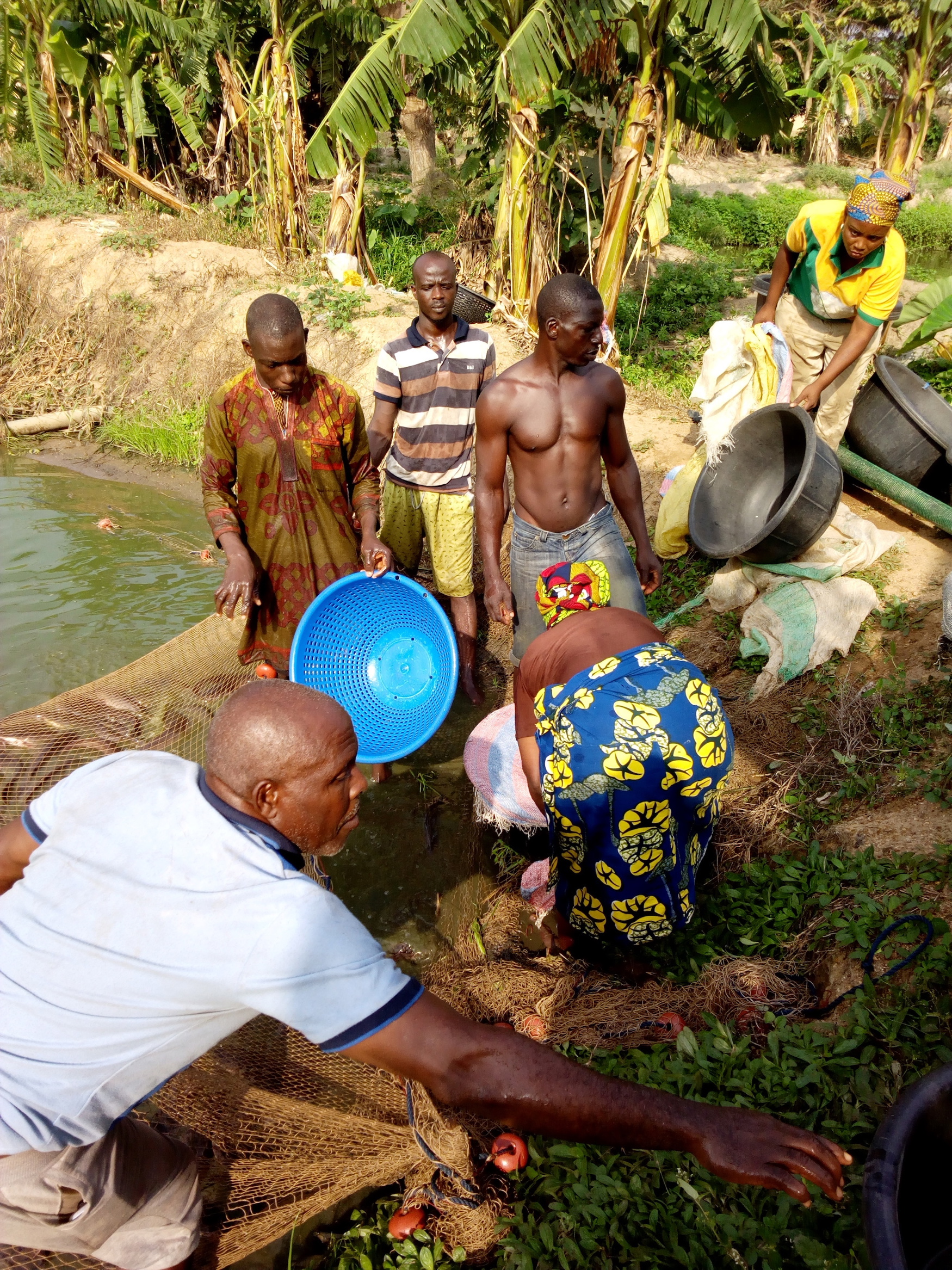The Catfish Sustainability Project is a social intervention for catfish farmers funded by Nutreco and Skretting Nigeria and facilitated by our local NGO partner, the Justice Development and Peace Commission, Ibadan. The project aims to improve the performance of small-scale catfish farmers, helping them increase productivity and income generation, promoting best management practices to ensure environmental sustainability, and facilitating an organised catfish farmers' structure to engage stakeholders’ participation in catfish production.

After the fifth phase in December 2021, the project had reached a total of 798 catfish farmers, aggregated in 46 groups in Oyo and Ogun States, Nigeria.
Between 2016 and 2021, 78.5% of the trained farmers adopted at least two of the innovations that were part of the best management practices we shared. We have also seen an increased average profit per farmer from 11% to 39%, catfish survival rates increasing from 69% to 95%, and a doubling of average harvest weight from 600g to 1.2kg. The adoption of more responsible production systems by participating farmers has led to the production of healthy catfish for consumption and also greater environmental sustainability.
Twenty-eight catfish farmer groups were able to sustain a cooperative shared- learning model. The farmer's groups are being connected to form organised structures. Participants learned to be flexible and better adapt to challenges that would have threatened their businesses.

“Our group (facilitated by JDPC/ Skretting) has brought progress to our lives. Initially, we never saw the need for a group/ cooperative, but now, members benefit from financial support and other things from the cooperative group to support our business.”
Oyelami Toyese’s story
Oyelami Toyese is a graduate of Federal College of Forestry in Ibadan Nigeria. He joined Glory Fish Farmers Group Awe, Oyo State in February 2021.
Toyese has been a catfish farmer since he finished his National Youth Service Corp service in 2017 without applying for any job. However, he has been practising fish farming in the traditional style, using chemicals, roughage, waste and maggots to feed fish. After receiving training from the Catfish Sustainability Project team, Toyese realised that catfish could be raised without the use of waste, wet feed, chemicals and antibiotics. He adopted the Best Management Practices learned and experienced a positive economic improvement.
According to Toyese, after he adopted improved fish sampling practices, strategic and timely sorting, and feeding fish based on biomass estimates, he was able to cut feed waste and reduce water pollution, which, in turn, reduced his production costs and increased his profit margins.
Decrease production cost and increase profit margins.


"I have been a fish farmer since 2001, but we formed a group and joined the Catfish Sustainability Project in 2019. Due to training from JDPC/ Skretting team, we were more enlightened on catfish farming, and it became a more profitable business. Due to the project intervention, group members have been able to acquire some assets and achieve even better things, which was previously difficult for us, even with the many years of catfish farming. The access to revolving input has greatly improved the profitability of the business.”